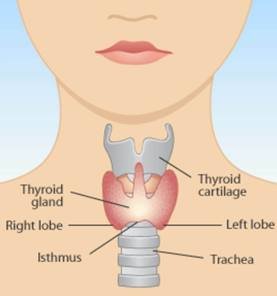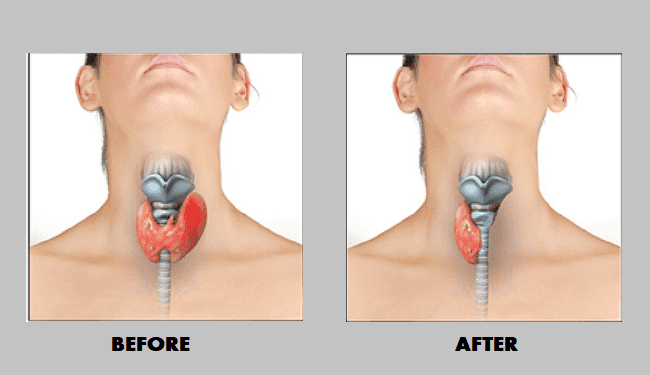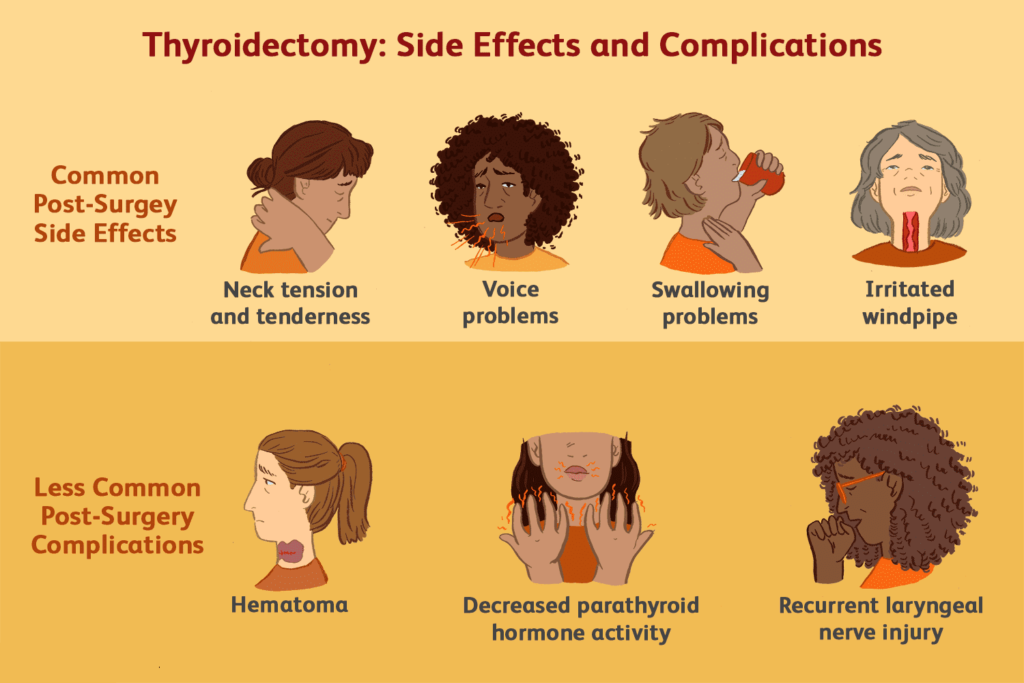Thyroid
Thyroid is a butterfly shaped gland in front of the neck which moves up and down with swallowing. The gland secretes thyroid hormone which is necessary for functioning of the human body.

Signs & Symptoms
- A swelling in the front of the neck
- Voice change
- Difficulty in breathing
There are four primary causes why your doctor might advise you to think about having thyroid

Surgery
There is a nodule on your thyroid that may be cancer.
- Your thyroid carcinoma has been identified. You have a nodule or goitre that is producing local symptoms like swallowing problems, constriction of the trachea, or an obvious or ugly lump.
- You have a nodule or goitre, either a toxic nodule, a toxic multinodular goitre, or Graves’ disease, that is causing symptoms as a result of the creation and release of too much thyroid hormone.
- You and your surgeon should talk about the scope of your thyroid surgery, which may be categorised as either a partial thyroidectomy or a whole thyroidectomy.
Part of the thyroid can be removed in the following ways:
- A hemi-thyroidectomy or thyroid lobectomy – where one lobe (one half) of the thyroid is removed; a total or near-total thyroidectomy is removal of all or most of the thyroid tissue.
- The cause for the procedure will decide the suggestion for the amount of thyroid surgery.
Hemithyroidectomy, for instance, may be used to treat a lesion that is restricted to one side of the thyroid. - A complete thyroidectomy would likely be suggested if you are being assessed for a significant bilateral goitre or a large thyroid malignancy.
- The scope of surgery, however, should be decided in consultation with your endocrinologist and surgeon as it is both a difficult medical and personal choice.

Risk of surgery
Thyroid surgery is often highly safe when performed by qualified personnel.
Although complications are rare, the following significant risks are still possible after thyroid surgery.
Bleeding in the hours following surgery that could cause acute respiratory distress
injury to a recurrent laryngeal nerve that can result in temporary or long-term hoarseness and, in the extremely rare case that both nerves are injured, acute respiratory distress; and damage to the parathyroid glands that regulate calcium levels in the blood that can cause temporary hypoparathyroidism and hypocalcemia or, less frequently, permanent hypoparathyroidism and hypocalcemia.
Patients who have invasive tumours or severe lymph node involvement, those who are having a second thyroid operation, and those who have huge goitres that extend from below the collarbone into the top of the chest are more likely to experience these consequences (substernal goiter).
Less than 2 percent of significant complications should occur overall.
However, rather than the hazards listed in the literature, the patient should be informed about the risks associated with their specific surgeon.
Before undergoing surgery, patients should be aware of the procedures’ possible dangers and advantages as well as the rationale behind them (informed consent).

